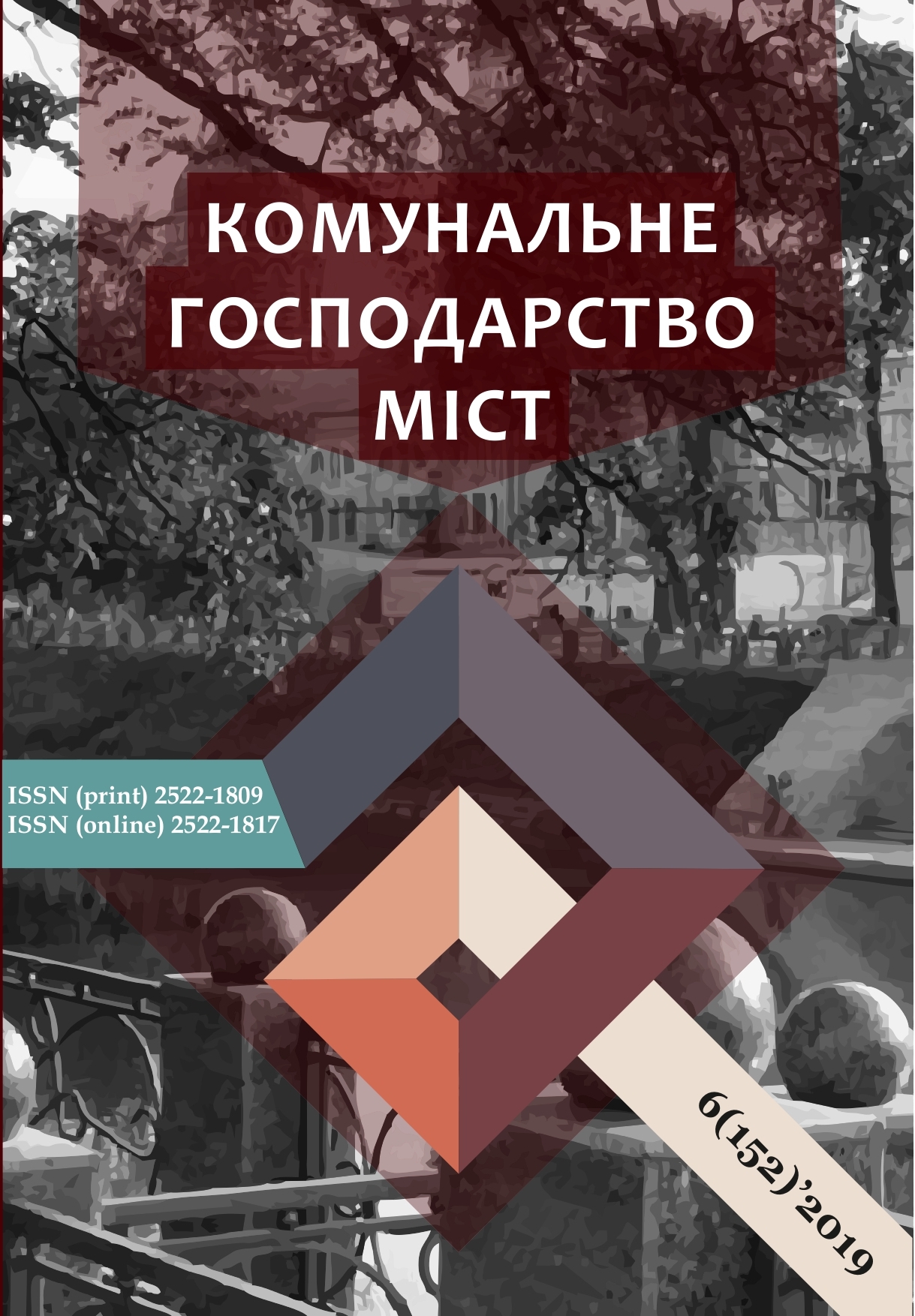MUNICIPAL SOLID WASTE DISPOSAL IN UKRAINE IN 2018
Array
Keywords:
municipal solid waste, storage, landfill, disposal, biogas, filtrate.Abstract
The analysis results of the state of municipal solid waste disposal in Ukraine during 2018 are presented. It is noted that the main method of solid waste management in Ukraine was a disposal at landfills (93,35%). Such way of management leaded to accumulation more than 1.3 billion tones of solid waste during previous years. Most landfills do not meet environmental safety requirements.
Only 46 landfills from 6107 have filtrate collecting systems and only 33 have technological facilities for its safe disposal. Moreover, in compared with 2017, there is a 20% reduction of the number of filtration systems and filtrate disposal systems. According to the calculations, the total volume of the filtrate, produced during the year at all landfills in Ukraine is 27 million m3. In case of incorrect filtrate treatment, it is obvious that it infiltrates into the underground water horizons, discharges into the surface waters. It leads to a significant deterioration of the hydrosphere. Only 18 landfills have the biogas extraction systems, one of which uses burning torch technology, and all other have cogeneration units.
During first 9 months of 2018, such systems produced about 2.6 million m3 of biogas and produced more than 8.4 million kWh of electricity. This fact confirms the economic expediency of solving the problems of municipal solid waste disposal by the arrangement of biogas extraction systems. At the same time, in 2018 only 5.500 UAH was spent on reconstruction of each hectare at Ukrainian landfills from the state and local budgets, which seems catastrophically insufficient for such dangerous objects. All this facts indicate that today there is no one country strategy in the field of solid waste management and the necessary attention to extremely acute environmental problems.
References
State of Waste Management in Ukraine in 2018. (n.d.). Re-trieved from: http://www.minregion.gov.ua/napryamki-diyalnosti/zhkh/terretory/stan-sferi-povodzhennya-z-pobutovimi-vidhodami-v-ukrayini-za-2018-rik.
State Statistics Service of Ukraine. (n.d.). Retrieved from: http://www.ukrstat.gov.ua.
Radovenchik, V., Poberezhniy, M., Radovenchyk, I., Kutsak, K. (2019) Features of solid waste management in the territory of Ukraine. Utilities of cities, 147, 94 – 100.
Sviridenok, A.I. (2004) The problem of choosing a technology for the disposal of municipal solid waste. Mat. symp "Material and energy recycling of municipal solid waste.". Grodno, 4 - 9.
Municipal Waste Treatment (2017). Retrieved from: http://www.cewep.eu/2018/07/05/municipal-waste-treatment-2017
Radovenchyk, V.M., and Gomelya, M.D. (2010). Solid Waste: Collect and Recycle, Kondor, Kyiv, Ukraine.
Geletukha, G. G., Kucheruk, P. P., Matveev, Yu. B. (2014) Prospects for the production and use of biomethane in Ukraine. Analytical note of BAU, 11, 44.
Chekushina, E.V., Kaminskaya, A.A. (2005) Monitoring of the ecology of landfills and landfills. Proc. doc. II Int. conf. "Cooperation for solving the problem of waste" (Kharkov, February 9 - 10, 2005). Kh.: Publishing House "ENGEC", 314 - 318.
Kashkovsky, V., Gorbenko, V., Sinyakov, Yu., Valchuk, D. (2010) Integrated purification of filtration water Municipal solid waste, 4, 34 - 39.
Podchashinsky, Yu. O., Kotsyuba, I.G., Yelnikova, T.O. (2017) Mathematical modeling and analysis of the effect of a solid waste landfill filtrate on the environment. Eastern European Journal of Advanced Technology, 1/10 (85), 4 - 10.
Downloads
Published
How to Cite
Issue
Section
License
The authors who publish in this collection agree with the following terms:
• The authors reserve the right to authorship of their work and give the magazine the right to first publish this work under the terms of license CC BY-NC-ND 4.0 (with the Designation of Authorship - Non-Commercial - Without Derivatives 4.0 International), which allows others to freely distribute the published work with a mandatory reference to the authors of the original work and the first publication of the work in this magazine.
• Authors have the right to make independent extra-exclusive work agreements in the form in which they were published by this magazine (for example, posting work in an electronic repository of an institution or publishing as part of a monograph), provided that the link to the first publication of the work in this journal is maintained. .
• Journal policy allows and encourages the publication of manuscripts on the Internet (for example, in institutions' repositories or on personal websites), both before the publication of this manuscript and during its editorial work, as it contributes to the emergence of productive scientific discussion and positively affects the efficiency and dynamics of the citation of the published work (see The Effect of Open Access).

